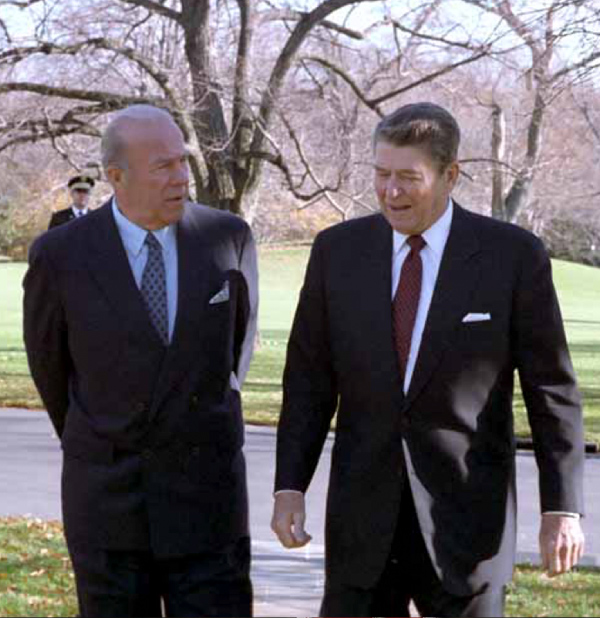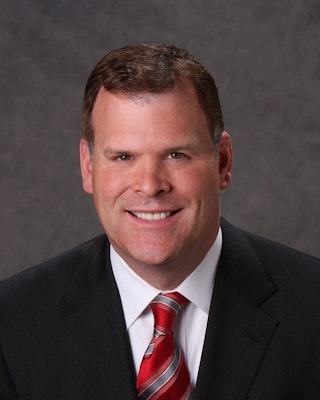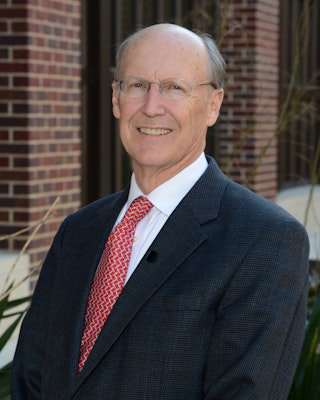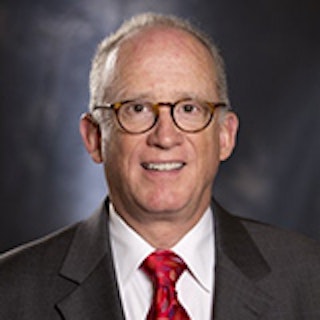A Stable North America Translates into Greater Security
Canada has long enjoyed a prosperous relationship with the United States. But former Canadian Foreign Minister John Baird watched North America as a whole grow in strength and security because of free trade on the continent.
 Canadian Foreign Affairs Minister John Baird at Modern Diplomacy Event 2014 (Global Affairs Canada)
Canadian Foreign Affairs Minister John Baird at Modern Diplomacy Event 2014 (Global Affairs Canada)
John Baird served as foreign minister of Canada from 2011 to 2015. Serving under Prime Minister Stephen Harper, he dealt with such issues as a terrorist attack in the Canadian Parliament, the negotiation of several major trade deals, and Canada’s engagement in the multilateral effort to stabilize Afghanistan.
Before becoming foreign minister, Baird served as transport minister and environment minister in the Harper-led government. Catalyst Editor William McKenzie and Bush Institute Economic Growth Director Matthew Rooney spoke with Baird about his the security implications of a strong North America.
Let’s start with the idea of a neighborhood. We spoke to former Secretary of State George Shultz on this same topic for the first issue of The Catalyst. He talked about how foreign policy starts in the neighborhood. Canada’s conception of its neighborhood has evolved over time, so how would you define Canada’s neighborhood today and what do you think it will look like 20 years from now?
When it came to free and open markets, we used to focus almost exclusively on the United States and to some extent Western Europe. What you are seeing over the last 25 years is a fundamental reorientation of that focus. We’ve looked not just to the United States, but further south into Mexico and, over the last five years, into the Pacific Alliance. The diplomatic and trade relationship with the United States was really the launching pad for a much deeper engagement in Mexico and beyond.
How did the stability of the North American relationship affect your work as foreign minister? Presumably it was a cornerstone, but was it a strength?
As you see the world’s economy diversify, it makes it even more important to have a stronger and established platform in your own neighborhood. The relationship economically has always been very strong, security has always been very strong, and in terms of values it has always been very strong with the United States.
We have started to think beyond that, particularly to Mexico, which has undergone a fundamental transformation since NAFTA was signed. Mexico’s liberal democracy has matured. Its economy has opened up. Free and open markets have helped lift people out of poverty, grow their economy, and generate wealth.
As you see the world’s economy diversify, it makes it even more important to have a stronger and established platform in your own neighborhood.
Mexico is clearly a linchpin in relations with Central America and Latin America. Could you envision a day when Mexico is a fully equal partner in regional security and maybe even a member of NORAD?
We’d certainly welcome it. The political transformation that has taken place in Mexico in a quarter century is extraordinary.
More than at any time in its history, Mexico is a stable liberal democracy. It has certain continued domestic security challenges, which it is addressing and has tackled. Going forward, we should be thinking about expanding the relationship on the security side. Absolutely.
From the Canadian perspective, we’ve got to start thinking about Mexico differently. Its economy has grown so much; it’s really a new Mexico. In the next 10 or 20 years, Mexico’s economy will be larger than the Canadian economy. We’ve got to start thinking of Mexico as not just a friend and ally but as a full partner.
In the next 10 or 20 years, Mexico’s economy will be larger than the Canadian economy. We’ve got to start thinking of Mexico as not just a friend and ally but as a full partner.
 Canadian Foreign Minister John Baird and Mexican Foreign Secretary Jose Antonio Meade meet in Mexico in 2013. (Global Affairs Canada)
Canadian Foreign Minister John Baird and Mexican Foreign Secretary Jose Antonio Meade meet in Mexico in 2013. (Global Affairs Canada)
Along those lines, how do you envision the best possible security cooperation among the three North American partners? For example, what about engaging Mexico in the short-term in the Caribbean and the eastern tropical Pacific?
When it comes to organized crime and the drug trade, there is demonstrably more engagement between our three countries. Certainly Prime Minister (Stephen) Harper took major efforts to expand our bilateral and trilateral security measures. Mexico and Colombia have more effectively responded to the challenge of crime, so Mexico can become a partner in combating crime in other parts of the region, such as Central America and the Caribbean.
Or, with the U.S., for that matter.
Probably even more so.
What is your take on the recent downturn in energy prices? How will that impact the energy security we need to maintain greater stability?
We face short- and medium-term challenges from the collapse in the price of oil and accompanying price of gas. Yet there are significant opportunities for the three countries and the three economies to work together.
That goes beyond just oil. It goes to electricity generation. It goes to fortifying and stabilizing the grid, especially since different parts of each country have different demands on their electricity consumption. There are opportunities to strengthen the grid and create redundancies that can support each other in times of challenge.
President (Enrique) Peña Nieto’s work on the energy front can lead to huge opportunities for investment, integration and support. He is not just making consequential changes, but is also bringing large parts of the opposition with him.
The Bush Institute’s North America Working Group recently visited a wind farm that Sempra Energy, a San Diego utility, built in Mexico. It seems that there is a small mountain range in Mexico southeast of San Diego that is uniquely good for generating wind power, so the utility built the lines and sells all the power to themselves in San Diego. They’re now considering expanding the capacity of the plants so they can sell power into Mexico. Thanks to Mexico’s energy reforms, they’ve seen a brand new market open up.
Reliable lower cost electricity in Mexico can be a major part of economic development for the country. Energy prices in areas like manufacturing are tremendously important for Mexico’s economic growth. Canada, Mexico, and the U.S. have a shared interest to see the eradication of poverty in Mexico, along with a prosperous, stable, and growing middle class.
 Canadian Foreign Minister John Baird, Secretary of State John Kerry, and Mexican Foreign Secretary Jose Antonio Meade speak at the State Department in Washington, Friday, Jan. 17, 2014. (AP Photo/Manuel Balce Ceneta)
Canadian Foreign Minister John Baird, Secretary of State John Kerry, and Mexican Foreign Secretary Jose Antonio Meade speak at the State Department in Washington, Friday, Jan. 17, 2014. (AP Photo/Manuel Balce Ceneta)
You were in office when Canada joined the process of creating the Trans-Pacific Partnership …
Here’s an example of where Canada and Mexico worked hard together to get into the TPP. Each of us was stronger by working together to get the Obama administration to let us in.
What role did the North American relationship play in TPP negotiations? Did it contribute? Did it detract?
At the early stages, the fact that Canada and the United States weren’t there was a major problem. The deal is a heck of a lot stronger having two other G-20 economies as a part of it.
Do you think Canada got a better deal out of the TPP process than it would have if it had done it alone in Asia?
Absolutely. Our bilateral trade discussions with Japan didn’t go anywhere while TPP was underway.
Also, the TPP is setting the pace for what we hope will be a broader rules of the road on trade globally, not just in Asia. I think it’s now a key priority of the American administration. I’m one who would like to see China and India be able to join in five to 10 years. Open, free markets grow economies, lift people from poverty, and build a broader middle class. That’s good for Canada, Mexico, and the U.S. but is also what we want for all TPP nations.
Open, free markets grow economies, lift people from poverty, and build a broader middle class. That’s good for Canada, Mexico, and the U.S. but is also what we want for all TPP nations.
Presumably, that helps stabilize the Asia-Pacific region.
Absolutely.
Your former counterpart, Secretary of State John Kerry, observed at one of your mutual press conferences how the U.S. and Canada have stood together through difficult security challenges. What will be the most demanding security challenges that Canada and the U.S. will face over the next four years?
Undoubtedly, it is the threat of radical Islamic terrorism. One of the great struggles of our generation is this challenge of terrorism and we must be strong and resolute in how we respond and how we work collectively to combat it. With Canada as a world friend and ally, in my judgment it is imperative that we work under strong American leadership in that struggle and do all we can to promote our values.
The Catalyst believes that ideas matter. We aim to stimulate debate on the most important issues of the day, featuring a range of arguments that are constructive, high-minded, and share our core values of freedom, opportunity, accountability, and compassion. To that end, we seek out ideas that may challenge us, and the authors’ views presented here are their own; The Catalyst does not endorse any particular policy, politician, or party.




